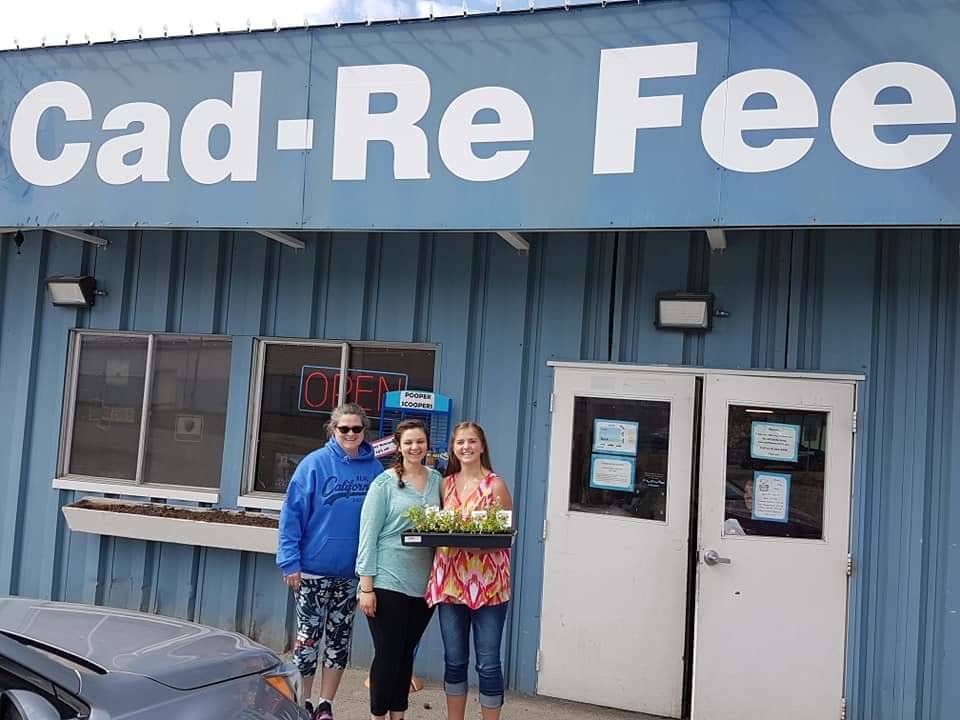After being delayed for over three months, the annual Caring for the Kenai contest took place virtually at the beginning of August, and high schoolers from around the Kenai Peninsula presented their unique ideas on environmental conservation and disaster preparedness to a panel of local judges.
The contest challenges students to respond to the question, “What can I do, invent or create to better care for the environment of the Kenai Peninsula or improve the area’s preparedness for a natural disaster?” by actually doing, inventing or creating something to present to the judges.
This year, rather than having the 12 finalists present their projects in person, the COVID-19 pandemic forced the contest to go virtual, with the students making their presentations in a Zoom conference on Aug. 6.
“We really appreciate the patience of this year’s finalists as the COVID-19 pandemic canceled the scheduled oral presentations shortly after the top 12 were selected in early March,” program creator Merrill Sikorski said in an Aug. 6 press release. “This certainly isn’t what we had in mind for our 30th anniversary, but CFK is a real world experience and the virus has changed the world and how we do things. The creativity and resiliency of our community and our youth brings hope for the future.”
Taking first place at this year’s competition was Connections Homeschool student and returning contestant Anna Devolld, who has been developing her Promote our Pollinators (P.O.P.) project for the last two years. Devolld originally unveiled her project at last year’s Caring for the Kenai competition, where she took third place. Since then she has won several other accolades and used her project to help peninsula residents “promote our pollinators” by distributing seed packs of pollinator-friendly plants that are native to the region, which people have planted outside their homes and businesses.
“If I were a student in Anchorage, Fairbanks, Juneau or anywhere else in Alaska I never would have had this learning experience because we are the only community that has this program,” DeVolld said in her recorded presentation. “Thanks to the CFK sponsors and this community’s support, at 15 I have my own business and have been honored nationally with the President’s Environmental Youth Award. This reminds me of Bedford Falls in the movie “It’s a Wonderful Life”, because you gave me this opportunity.”
DeVolld took home $1,600 in cash for first place.
Coming in second place for the second year in a row was a pair of Seward High School students, Lindy Guernsey and Akilena Veach. For several years now, Veach and Guernsey have been using a drone that they built using the 3D printer in their classroom to help the Seward Flood Board monitor areas that are at risk of flooding.
The third place winner was Austin Cline from Homer High School, who won first place last year for building a machine that recycles otherwise unusable plastic into the filament used by 3D printers. Cline improved on his machine and made it more cost effective this year, and won $900 for his continued efforts.
In fourth place was Kenai Central High School student Nekoda Cooper for her “Imperfect Produce” business that takes the blemished and bruised produce that farms would otherwise throw away and sells it a reduced cost. Cooper won $750 for taking fourth place this year.
Fifth place and $650 went to Ashley Dahlman of Soldotna High School for her idea of collecting and reselling clothes that are “Wonderfully Worn.”
The rest of the 12 finalists each received $400 for participating.
In addition to the $8,000 given to the students, $20,000 was awarded to the science departments of all the schools who include CFK in their curriculum: Cook Inlet Academy, Kenai Central High School, Homer High School, Nikiski High School, Seward High School, Soldotna High School and Connections Homeschool. The contest is administered by the Challenger Learning Center of Alaska and sponsored by Marathon Petroleum, Kenai River Raven Lodge, Hilcorp Energy, Peninsula Community Health Services, ConocoPhillips, Sweeney’s Clothing and Peninsula Radiation Oncology Center. At least $750 is given to each participating school, and the rest of the $20,000 is distributed based on the rankings of the student finalists.
The panel of judges this year included Sen. Peter Micciche, R-Soldotna; Cameron Hunt, plant manager of Marathon Petroleum; Pegge Erkeneff, communications liaison for the Kenai Peninsula Borough School District; Marnie Olcott, CEO of the Challenger Learning Center of Alaska; Dick Erkeneff, owner of Kenai River Raven Lodge; Robin Barry, Southern Division Manager at ENSTAR; Branden Bornemann, director of the Kenai Watershed Forum; and Carlee Rizzo, winner of the 2018 Caring for the Kenai Contest.

